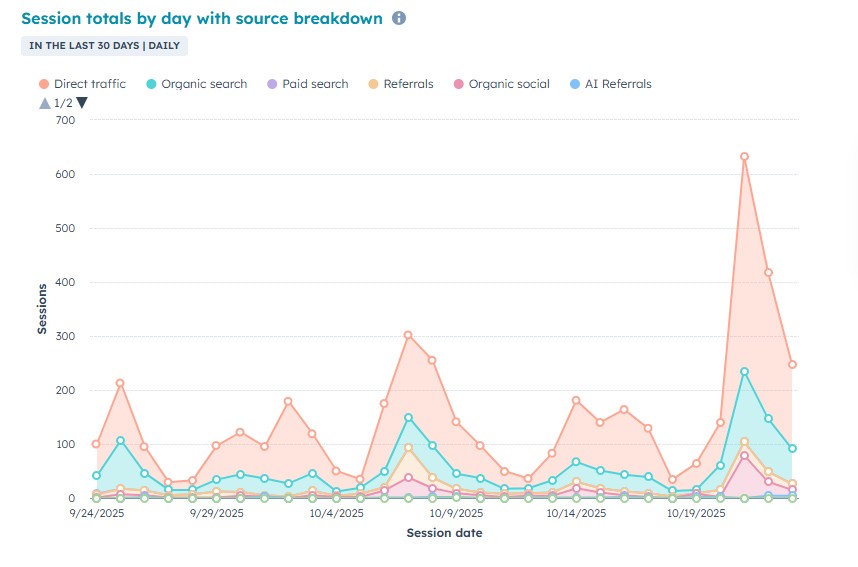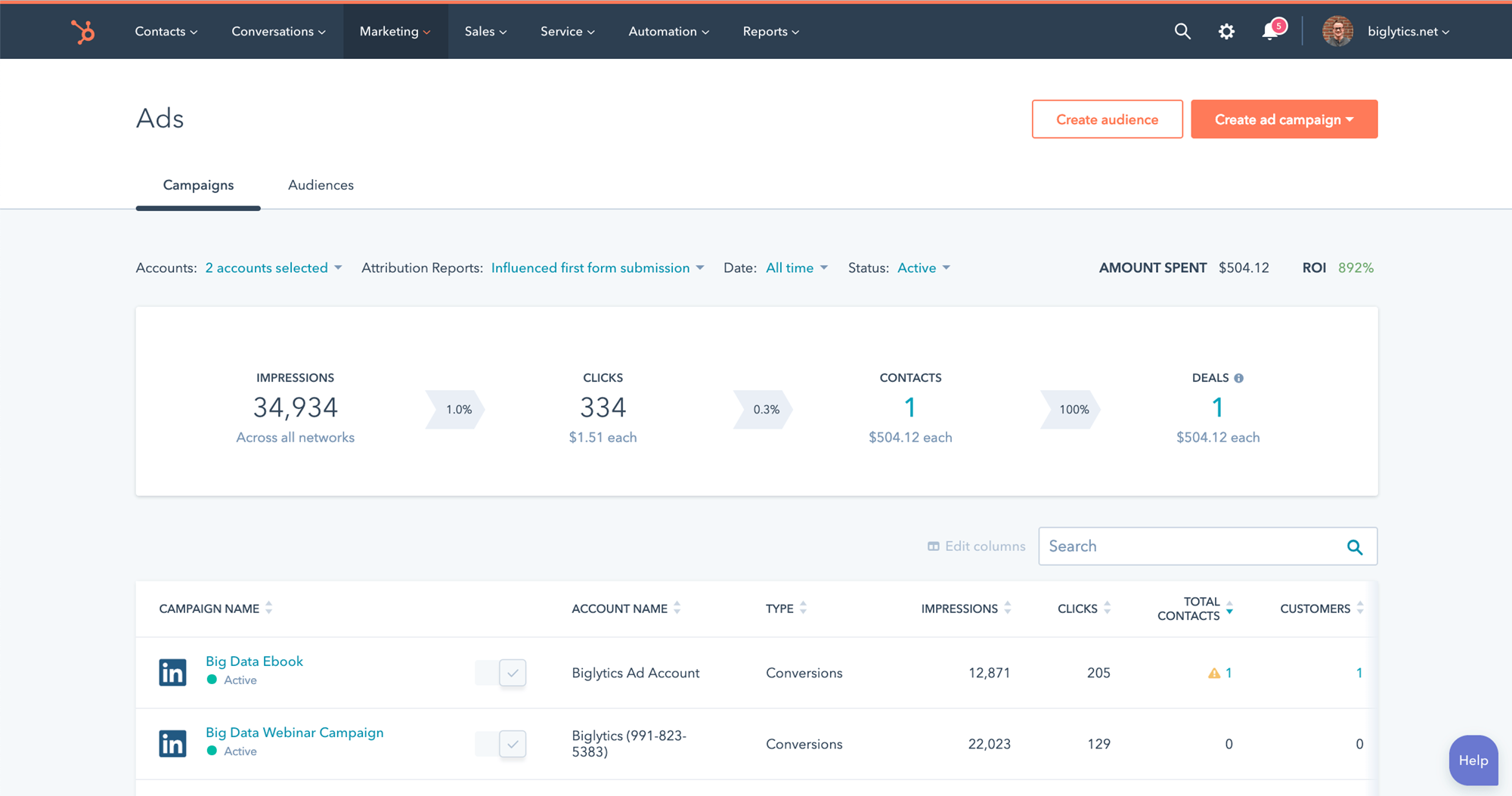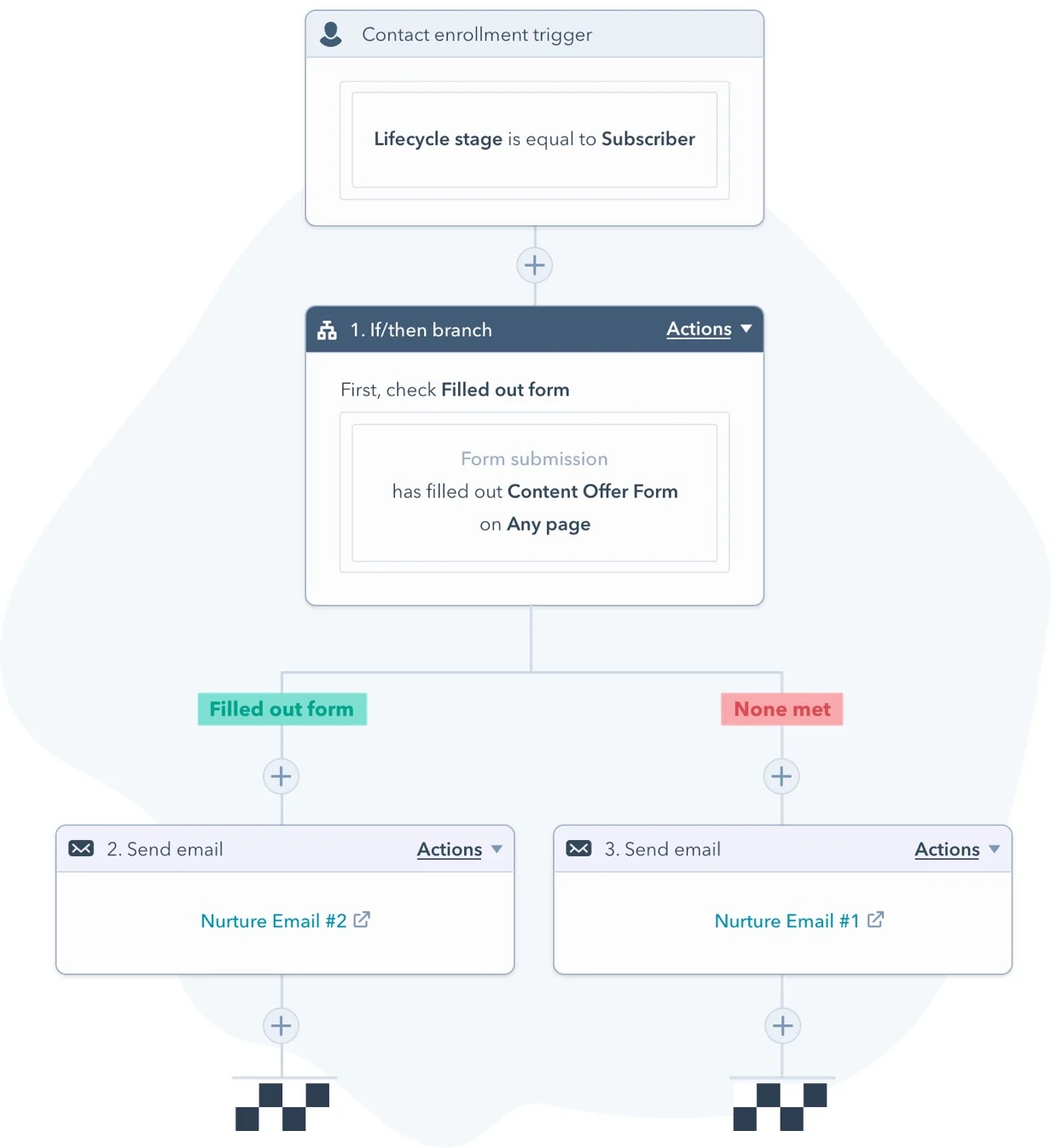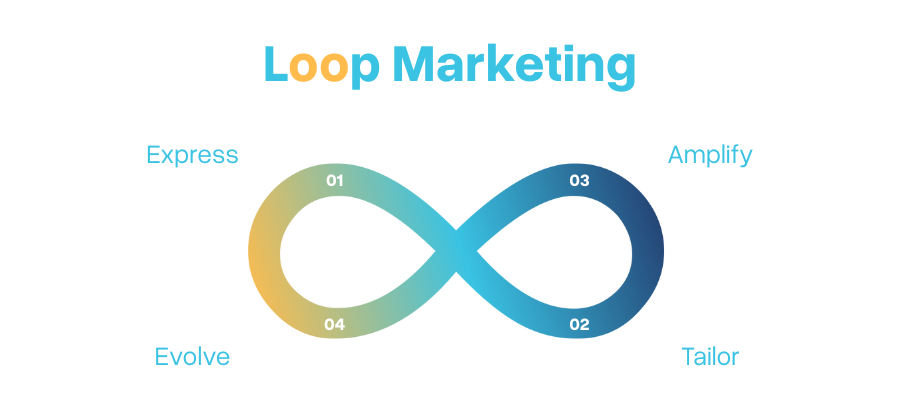You know that exhausting feeling of juggling five different tools just to run one marketing campaign. One tool for emails, another for social posts, one for ads, one for website analytics, and endless spreadsheets to track leads. At the end of the month, you are still left wondering which of these efforts really worked.
That was exactly where one of our clients found themselves.
Let me share how we helped them simplify their MarTech with a single, integrated solution.
From Scattered Tools to a Unified Platform
Initially, customer focus was only on basic email campaigns. Messages went out, but results were not tracked. Sales and marketing were not connected, and opportunities were slipping through the cracks.
As their business grew, their marketing needs became more complex. They wanted a way to manage all activities in one place instead of relying on multiple disconnected tools.
That was when we introduced them to unified platform options that could manage CRM, email, automation, ads, social posts, and reporting in one tool. The platform we chose to manage the needs of this particular client was HubSpot.
Gaining Visibility into Customer Journeys
The first instance that our client saw the value of a unified platform was when we connected their website to HubSpot. Suddenly, with proper cookie tracking and GA4, they could see which pages visitors engaged with, how long they spent on the page, and which actions they took.
Instead of guessing what visitors cared about, they finally had real actionable data.
Turning Form Submissions into Actionable Leads
We then added forms that captured inquiries directly from the website and fed them into the CRM. This gave us clear visibility into where leads were coming from and how they were engaging.
Instead of scattered and unorganized contacts, we now had structured data. By segmenting these leads based on interests and behavior, we could personalize communications for each audience group and make every interaction more relevant.
Running Campaigns Without the Chaos
With segmentation established and known preferences, we managed emails and personalized communications, scheduled social posts, and ran ad campaigns directly from within the platform, eliminating the need to switch platforms or transfer data.
The best part? All the results were consolidated in a single dashboard. Engagement, reach, and CTRs were now easy to see and compare.
Automating Follow-Ups So Nothing Falls Through
The next major improvement came with automated nurture workflows. They could ensure that every lead received timely follow-ups without manual effort. For example, if someone downloaded a brochure from the site, an automated nurture email was sent a week later. Based on engagement, they either received additional resources or were retargeted with ads.
Follow-ups stopped being manual and started being automated, giving the team more insight and actionable data as well as freeing up precious time to spend on other projects.
Reports that Tell the Story
Every marketer wants to know if their effort is really paying off?
With reporting dashboards our client could finally see performance across email, social, ads, and web all in one place. No messy spreadsheets. No blind spots. It became easier to intervene and immediately obvious what was working and what needed adjustment.
What About AI?
HubSpot continues to evolve. At INBOUND 2025, they announced “Loop Marketing,” which takes AI even deeper into the platform. Tools such as ChatSpot and Content Assistant now support writing emails, suggest social content, build dashboards, and even optimize campaigns.
It feels less like using software and more like working with a teammate.
Final Thoughts
This transformation answered our client’s biggest questions:
- Can it integrate with our website? Yes.
- Can it manage email, social, ads, and reporting in one place? Yes.
- Can it save time with automation and AI? Absolutely.
We work with a range of marketing automation and CRM platforms including HubSpot, Eloqua, and others to help businesses connect their marketing, sales, and customer data in one place.
HubSpot is one of the platforms we specialize in, but our experience covers several tools so clients can choose what fits their needs best.
As a HubSpot Solution Provider, we use HubSpot’s full suite of marketing and CRM tools to help our clients run smarter campaigns, nurture leads, and see measurable results.
We are HubSpot Marketing Hub software certified. Validating our expertise and strengthened our ability to deliver measurable results for our clients.
Combining our semiconductor marketing experience with the latest MarTech tools has given our clients end-to-end expertise, helping them scale their marketing efforts more efficiently and cost-effectively.
Get results from HubSpot with our certified guidance.
Contact us today.
About Author
Vinay Preeth
Performance Marketer at heart. I love figuring out what makes people click and turning messy data into clear decisions that help teams run campaigns that actually work.
Performance Marketer at heart. I love figuring out what makes people click and turning messy data into clear decisions that help teams run campaigns that actually work.
“SEO is dead!”
“Google just killed SEO.”
I am sure you have read these phrases a lot more in the last few days. A quick search on Google’s AI Mode will tell you they are not true.
Clearly Google’s AI wants us SEO-dependent folks to believe that SEO still matters, but being the smart guy, I am, here’s what I figured from Google’s I/O 2025: there are plenty of reasons to panic.
For years, companies across the world have used SEO, a familiar compass to navigate the complexities of digital traffic. We created long-form content, optimized for keywords, chased quality backlinks, and tracked rankings, all hoping to capture the attention of the ever-eluding decision-makers. But if you believed that you had the search engine playbook figured out, Google I/O 2025 just tossed it into a shredder.
This year’s Google I/O wasn’t just another update; it was a seismic event for businesses. And it’s not minor tremors; it’s a complete overhaul of how information is searched, found, consumed, and acted upon online. The rules of the game are changing, and they are changing fast.
For the B2B tech industry, where complex queries and niche expertise are fundamental, understanding these changes isn't just optional – it's existential.
Let's dive into the core updates that will redefine digital marketing for B2B tech and how you can prepare for an AI-first search future.
1. The AI Mode and Overviews Domination
Remember the good old days, when Google was just "10 blue links"? Those days are quickly fading into the abyss. Google I/O 2025 unleashed AI Mode and expanded AI Overviews, making them central to users’ search experiences.
Imagine a super-human research assistant who can instantly gather information from dozens of sources, learn from them to answer complex, multi-part questions, and even keep the conversation interesting. That's Google's AI Mode for you.
Instead of showing a list of links, Google AI Overview will now understand the search query and generate a direct, comprehensive answer – often cited from various websites – right at the top of the search results. Essentially, killing the need to click and explore the links for most users. This is a huge SEO reality check for most businesses.
For the B2B tech industry, particularly those targeting "top of the funnel" informational queries – "What is quantum annealing?", "How does a 5nm processor work?", "Comparison of RISC-V architectures" – users might never go to your website. They'll get their answer directly from Google's AI.
Here’s how this will impact you:
- The Click-Through Rate (CTR) Apocalypse is Real: As we head for zero-click search results, the CTR will drop for many informational keywords. It will burn you on the insides, knowing that your content will power the AI Overview, but the direct traffic you once enjoyed will diminish.
Search queries targeting informational keywords that trigger AI Overviews show an average zero-click rate of 83% (Source: ClickVision) - Citation is the New Ranking: Rank #1 won’t matter much now; When an AI Overview appears, the CTR for the #1 organic position drops by ~34.5%.(Source: ClickVision)
The new goal is to be cited by Google's AI as a source within its generated answers. Remember, out of sight is out of the mind. This elevates the importance of your E-E-A-T (Experience, Expertise, Authoritativeness, Trustworthiness) signals. Listicles and regular informational content won’t make the cut anymore. Does your content showcase genuine topical expertise? Are your authors credible and experienced industry veterans? Are you publishing original research that Google deems worthy of quoting? Read more about Making your brand visible to AI. - AI-Readable Content: To feature in AI citations, first, you want to make sure that AI uses your content to generate its answers. AI prefers clear, concise, and structured content. Think of it like studying just a day before the exams. You don't want to read rambling prose; you want structured bullet points, clearly defined glossaries, tables, and direct answers to specific questions. Your long PDFs, dense whitepapers, and unstructured blog posts might be okay for human eyes, but a frustrating puzzle for AI.
2. Deep Search: What AI on Steroids Looks Like
Building further on AI Mode, Google introduced Deep Search. This isn't just about answering simple questions; it's about generating expert-level, researched reports with citations in minutes. Deep Search can simultaneously issue hundreds of sub-searches and reason across different pieces of information to generate incredibly detailed answers, saving hours of research.
For users researching complex topics, such as "implications of neuromorphic computing on edge AI performance" or "security vulnerabilities in embedded IoT chipsets", Deep Search is a game-changer. For companies, this will be a golden opportunity to get cited and build industry authority. Here’s what you need to know:
- Niche Expertise: If your company has established authority in a highly specialized field, your in-depth articles, research papers, and technical specifications will be gold mines for Deep Search, and you will be prominently featured as a source. If not, your competitors who are investing in such insightful, verifiable content will be.
- Original and Proprietary Data: AI can synthesize, but it cannot entirely create original research. If your company is into publishing unique data, case studies, or patented methodologies, this is your moment to shine. Google's Deep Search prioritizes content that adds novel insights or offers unique perspectives to its users.
3. Agentic Search: When AI Becomes a Personal Assistant
This is really interesting and frankly, a little unnerving for traditional funnels. Your target audience might convert into leads without ever landing on your website. Google is now pushing more for "agentic search," where AI Mode is not limited to just providing information but can also perform tasks on behalf of the user.
Imagine a future where an AI assistant could:
"Find a semiconductor manufacturer that can produce a custom 7nm ASIC with low power consumption." The AI then identifies potential vendors and initiates a demo request on behalf of the user, pre-filling forms with user-consented data.
Agentic Search and tasks won’t just be limited to form submissions, though; powered by
Project Mariner, it has already shown capabilities to book appointments, make reservations, compare prices, and even add items to a cart on behalf of its users.
Here’s how it will impact SEO:
- "Machine-Operable" is the New Mantra: Your website's user experience (UX), forms, and underlying data structures must be completely AI-ready. If a human can easily navigate, fill out a form, and complete a task on your website, an AI agent should be able to do it too.
- From Discovery to Action: Your SEO focus shifts from merely driving traffic to enabling direct conversions within the Google search interface. You need to ensure that your conversion points (buttons, contact forms, APIs) are frictionless and AI-friendly.
4. Multimodal Search: See It, Speak It, and Search It
One of the major highlights of Google's I/O was advancements in multimodal search, notably with "Search Live" and Project Astra. Users can now search using their camera and voice in real-time, engaging in conversational interactions about what they see around them. Jarvis (the AI from the Iron Man Movie) is one step closer to reality.
While it sounds mostly consumer-focused, consider the business applications:
- "Show me the datasheet for this component" (user points the camera at a chip).
- "What's the energy efficiency of a server rack with these specifications?" (user points camera at a server configuration, AI reads specs).
High-quality visual content will be the new SEO gold - images, diagrams, product videos, and even 3D models become critical for AI to get context. As a business, it will be important to optimize your image alt text, add metadata to your content, provide detailed video transcripts, and ensure your visuals are descriptive enough for AI to understand their context and content.
SEO Metrics and What Actually Matters Now
The biggest emotional trigger for most SEO experts and businesses post the Google I/O event is the inevitable decline in traditional search-driven traffic. This isn't a minor algorithm update; it's a paradigm shift in user behavior driven by Google.
The SEO Reality Check for Businesses:
- Rankings are Now a Vanity Metric (Well, Mostly): While ranking #1 still feels good, it no longer guarantees the clicks it once did. We urgently need to shift our focus to AI visibility – being cited in AI Overviews, appearing in Deep Search reports, and making our websites more "actionable" for AI agents.
- Change in Funneled Approach: It's true that the traffic and clicks to your website will drop, but the ones that you do get are likely to be of higher quality and intent. If an AI has already filtered and answered the query, the user clicking through is probably further down the funnel, ready for deeper engagement or even conversion: less volume, but more value.
- Diversify Your Channels: While Search continues to remain critical, B2B companies need to double down on other demand-generation channels. For example, email marketing to nurture leads, thought leadership on LinkedIn, webinars to showcase your expertise and industry authority, and strong community engagement on X and Reddit. Don't put all your eggs in the Google basket, especially when the basket itself is undergoing a dramatic transformation.
- Embrace E-E-A-T Like Never Before: If AI is going to act as a surrogate for human users, it will prioritize sources that demonstrate unparalleled expertise and trustworthiness. Invest in your technical experts, showcase their credentials, and ensure your content reflects deep, verifiable knowledge. No more fluffy, generic content – the AI will see right through it.
The Path Forward: Don't Panic, Adapt
The SEO landscape is quickly changing, but it's not a death knell. Rather it's a call to evolve.
“The reports of my death are greatly exaggerated” - Mark Twain
Google I/O 2025 isn't just about SEO; it's about Google becoming a universal AI assistant. For B2B businesses, this means your traffic, engagement, and sales cycle, historically driven by human discovery, will now be heavily influenced by machine intelligence.
The question isn't whether SEO will change, but how quickly and strategically you adapt. The future of marketing is here, and it’s powered by AI. Are you ready to plug in?
We can help you with the right insights and make your brand visible in an AI-first world.
About Author

Sagar Chawla
Digital Marketing Manager at Anion Marketing
Engineer turned storyteller turned marketer. Apart from running campaigns and demystifying MarTech, can talk for hours about science, tech, life, and movies - in that order.























.svg)





.png)


